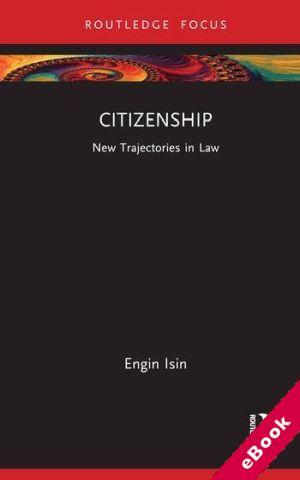
The device(s) you use to access the eBook content must be authorized with an Adobe ID before you download the product otherwise it will fail to register correctly.
For further information see https://www.wildy.com/ebook-formats
Once the order is confirmed an automated e-mail will be sent to you to allow you to download the eBook.
All eBooks are supplied firm sale and cannot be returned. If you believe there is a fault with your eBook then contact us on ebooks@wildy.com and we will help in resolving the issue. This does not affect your statutory rights.
This book outlines a critical theory of citizenship, with an emphasis on how citizenship institutes power relations and organizes the rights and obligations of those who become its subjects.
Whether it is the question of the rights of animals, children, migrants, minorities, mothers or mountains, and whether such rights are protected or guaranteed by national law, international law, or human rights law, the issue of citizenship has already indelibly marked the 21st century. As an institution, citizenship governs the relationship between a polity and its peoples by dividing them into citizens and noncitizens, with differentiated rights and obligations. So necessarily, this book argues, citizenship is an institution of domination and emancipation that brings into play the struggles of those who want to protect certain privileges and the struggles of those who are against being caught in either second-class or noncitizen categories. Deconstructing dominant theories and practices of citizenship, a critical theory of citizenship must, therefore, not only analyse intersecting rights, but also connect citizenship to these broader social struggles. For it is these struggles, the book maintains, that give meaning to citizenship itself.
The book will be of interest to scholars and students in sociolegal studies, sociology, politics, and as well as those working in citizenship, migration and refugee studies.